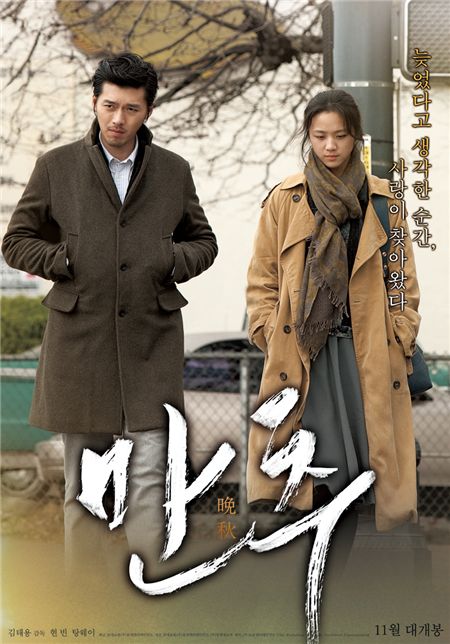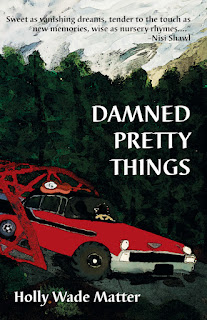Pleasures of 2023
by Holly Wade Matter
Read:
Knife Witch by Susan DiRende
In Susan DiRende’s debut fantasy novel, seagoing raiders, establishment witches, an evil Emperor, a volcano, and a lovelorn kraken put the heroine, the Knife Witch, through her paces and goad her, much to her annoyance, to evolve and reveal her true nature and power. An inveterate pantser, the Knife Witch (whose name is revealed only near the end of the novel) eschews plans and goes by her gut instinct and her fortunate trait of itching when danger is near. With every setback she encounters, she powers herself through with a philosophical "Be as must be." She gathers around her a small family of outcasts who have, each in their own way, a unique power to add to the magical stew.
Knife Witch was a fun read, rich in unique detail and escapades. And if the characters didn't exactly have a riotous good time, this reader did.
Demon Copperhead by Barbara Kingsolver
When this novel was first recommend to me by my well-read neighbor, I imagined it was a contemporary fantasy book. It took a few paragraphs for me to catch on that it was a reimagining of David Copperfield. Kingsolver, like Dickens, is masterful at depicting children in peril. Demon (born Damon) has to endure a drug-addict mother, a brutal stepfather, forced labor on a tobacco farm, and more travails before reaching the safety of Coach Winfield and his daughter Angus. Demon achieves glory on the high school football team, only to injure himself in the game. From that point, he is pulled into the sad world of drug addiction, in the company of fellow addicts.
The book is beautifully written and harrowing. The stand-out scene, for me, is the storm and the confrontation between the rough equivalents of Dickens’s Ham and Steerforth. I know that scene will stay with me for a long time.
(A friend who claims David Copperfield as his favorite novel said that Demon Copperhead left him feeling depressed, whereas David Copperfield left him with a spring in his step. I understand )
David Copperfield by Charles Dickens
After finishing Demon Copperhead, and while it was still fresh in my mind, I hied me hence to Project Gutenburg for an ebook copy of David Copperfield. I hadn’t read it in many, many years, so much of it was as new to me as if I’d never read it at all.
This was a satisfying three-day read, and it kept my attention sharp throughout its 64 chapters. Unique characters abounded, as one would expect from a Dickens novel, and I was pleasantly surprised by the tenderness and compassion with which Dickens portrayed the novel’s two “fallen” women (and one suspected of being on the brink).
Also, as I read, I wondered who was the biggest villain – Murdstone and his sister, Steerforth, or Uriah Heep. I’m still undecided.
Listened:
Lindstrom, “Little Drummer Boy”
If you have to lose the “Little Drummer Boy” challenge (which is probably inevitable), and you’re not fond of the Bing Crosby/David Bowie duet, you could do worse than to listen to Lindstrom’s 43-minute-long version. My youngest brother turned me on to this. The first time he heard it, he was on a long night drive through Oklahoma. I imagined the drum beat as measured as broken white lines on the highway, and enough development of the music to keep him interested and alert.
The begins with a sequence of old-school synthesizer bleeps and bloops. That drumbeat comes in at 1:15 minutes, growing louder and more distinct. The familiar melody joins the party about 3 minutes in, and more than halfway through, a ghostly chorus joins, sounding as if they are coming through long distance on an old rotary phone. The music builds to a crashing crescendo before abruptly halting.
Viewed:
Late Autumn
Let me preface this by stating that this movie is one of my top three favorites, and that it is nearly impossible to get a hold of anymore. It was once available on Netflix, which must have been where I saw it first. Happily, I managed to score a legit Blu Ray copy from a dealer in Kuala Lumpur.
Late Autumn (2010) is a joint South Korean/Chinese/United States production set in Seattle, directed by Kim Tae-yong and starring Hyun Bin as Hoon and Tang Wei as Anna. The third star of the movie is Seattle itself, portrayed in all its grey drizzling beauty. Scenes are shot at the Pike Place Market, on a Ride the Ducks tour, and the Seattle Center Fun Forest (as it is being dismantled). It is the most beautiful film depiction of the city that I’ve ever seen.
Anna, an immigrant from China, is a battered wife who accidentally kills her husband when he finds out she’s in contact with her ex-boyfriend. She has been in prison for manslaughter for an unspecified time when she receives a call from family. Her mother has died. She is granted 70 hours parole to go to Seattle for her mother’s funeral. On the bus she meets Hoon, a young South Korean man who supports himself as a gigolo. She lends him $30 for his bus ticket, and he gives her his expensive watch until he can pay her back. Hoon is on the run from the husband of one of his clients. He is playful, unconcerned, and he enjoys flirting with Anna.
Anna, on the other hand, is so reserved that nothing changes the wary expression on her face. she barely speaks, even when among her family.
Anna and Hoon meet up again, and Hoon proposes that he show Anna the sights. Anna at last catches Hoon’s playfulness. From then on, their identities and stories become mutable. In a restaurant after the funeral, Anna’s ex-boyfriend and his young family are present. Hoon spins a story about running a restaurant in China where Anna works as a waitress. Anna plays along, even when a fight erupts between the two men.
At the end of her 70-hour parole, Anna boards the bus that will take her back to prison. Hoon joins her, and they play that they are meeting for the first time. The ambiguous end of the movie, when Anna is finally released from prison, shows Anna has retained that sense of play that Hoon awakened in her.
Holly Wade Matter's debut novel, Damned Pretty Things, was released in 2020 by Aqueduct Press. Her short fiction has appeared in Asimov's Science Fiction, Century, and the Bending the Landscape anthology series. She is a graduate of the University of Washington and of the Clarion West Writers Workshop. She has twice been awarded literary funding from the Seattle Office of Arts and Culture, and in 1998 she received a creative writing fellowship from the National Endowment for the Arts. She lives in Seattle with her husband Brad and two house rabbits.






No comments:
Post a Comment